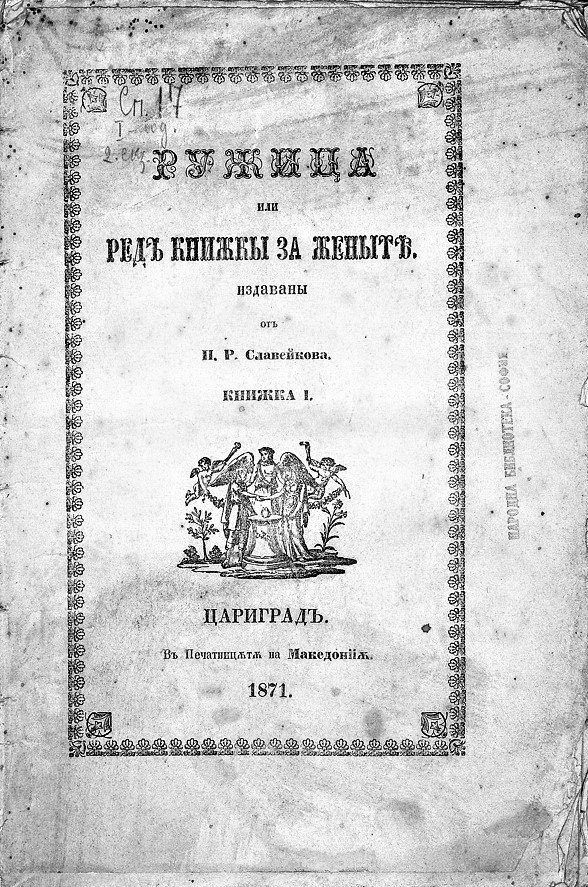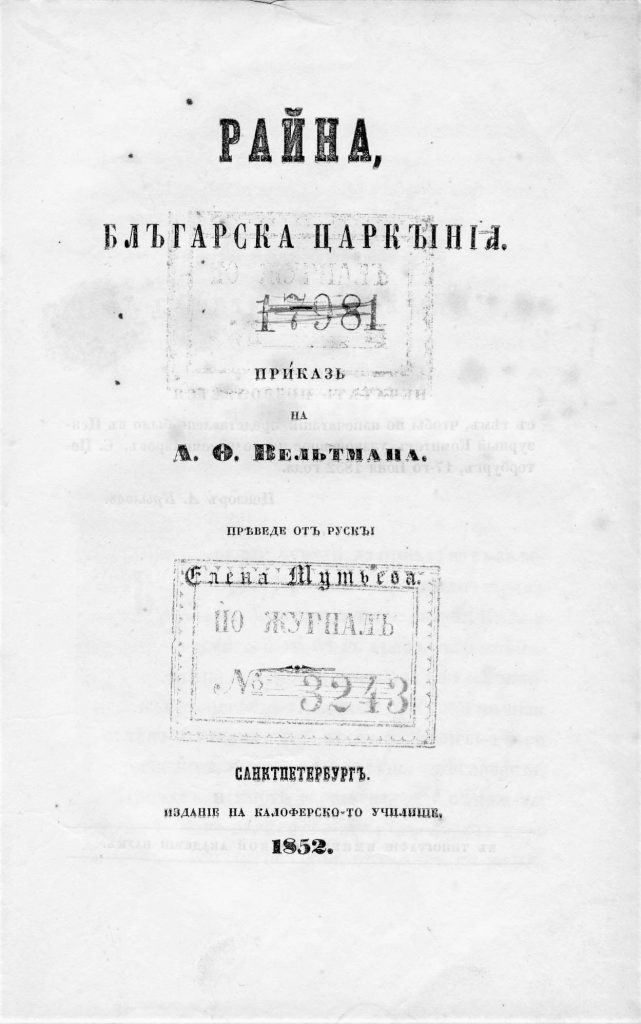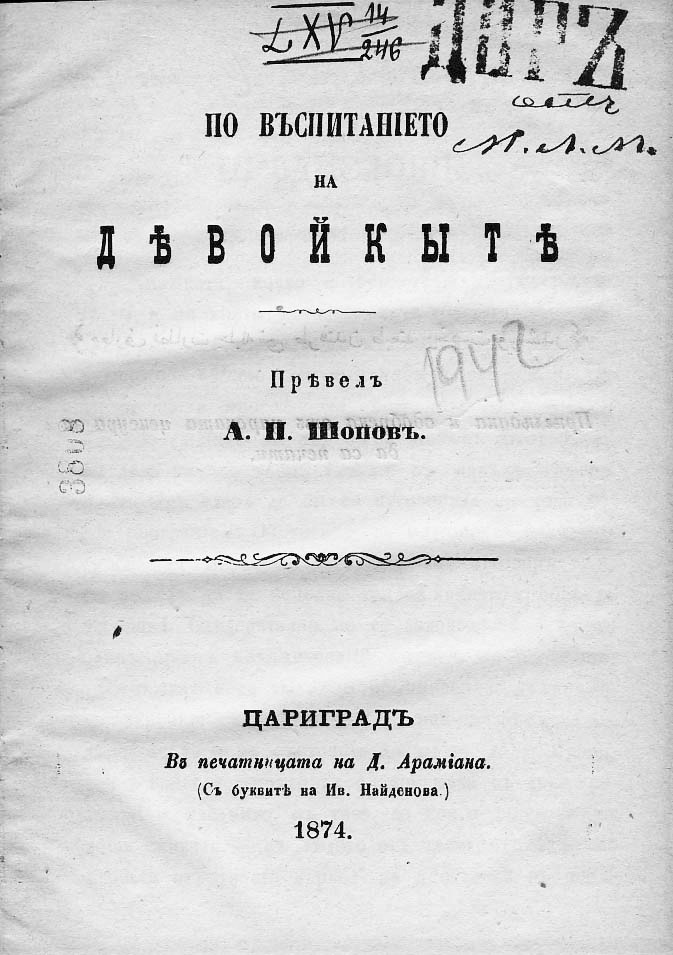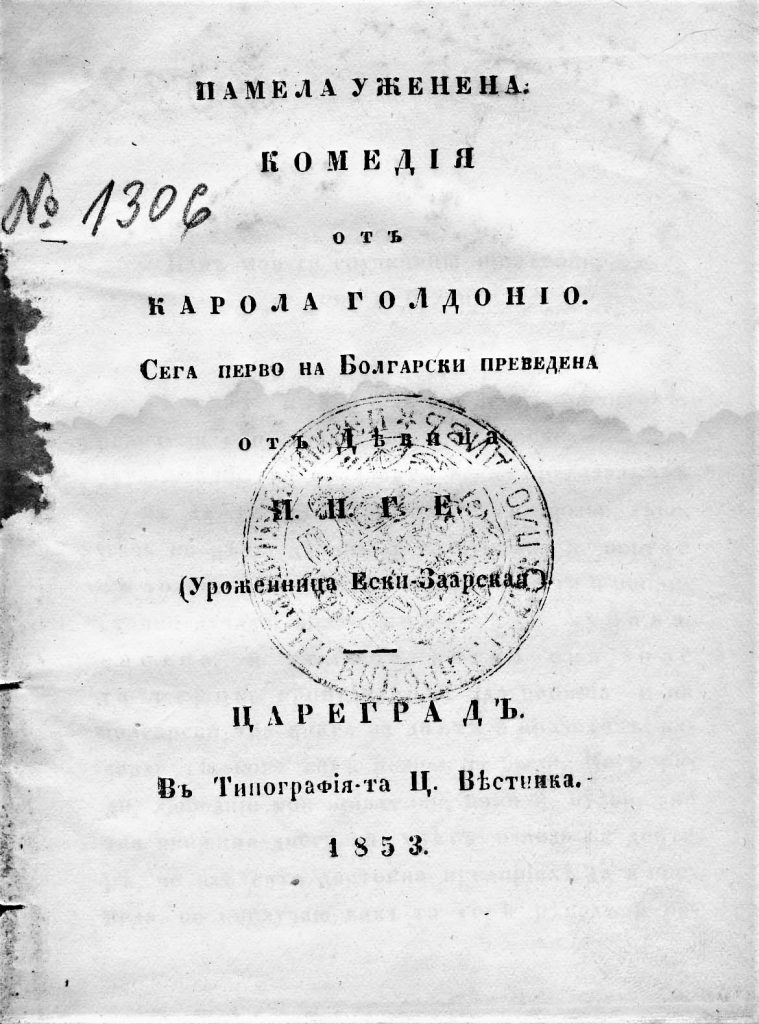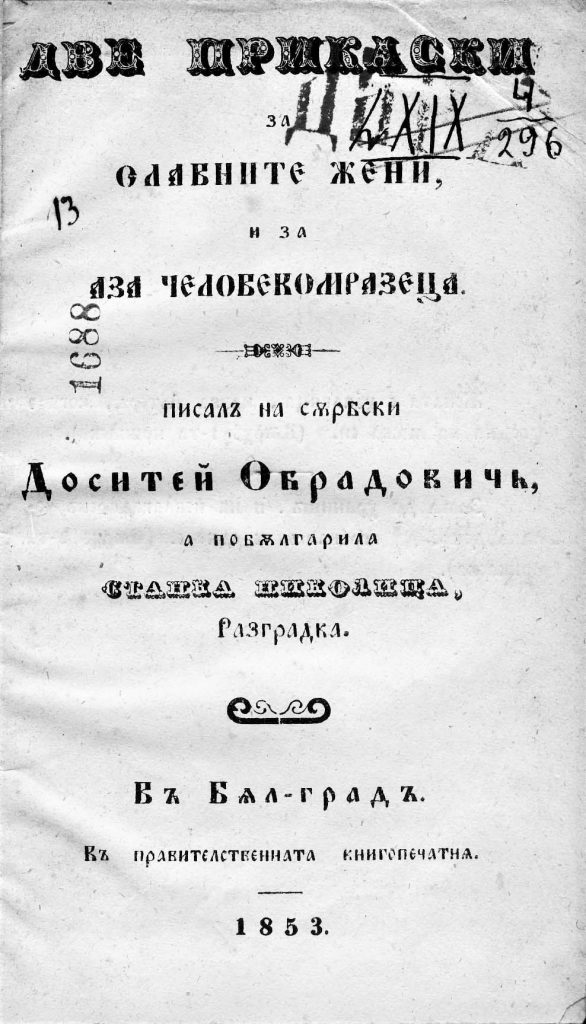Enlightenment pedagogical theories about female education and their spread in the Black Sea Region
In the 19th century a public debate began in Bulgarian society on the question of whether a woman’s education is necessary. On the one hand, the proponents of the traditional view maintained that women are subordinate and dependent on the man, with no intellectual ability and no autonomy in public life.
In the 1840s, the Bulgarian intellectuals, strongly influenced by the ideas of the Enlightenment, formulated the view of the need for female education. The journalist Konstantin Fotinov believed that women are God’s creations as men, that they had had the same mental abilities and that they will have a major role in the family and the education of the children. In the 1860s, the poet and journalist Petko Slavejkov remarked what innumerable obstacles cause the progress and welfare of a nation to ignore the mental development of women,” and concluded: “the upbringing and learning of women depends on the education of the people, a woman benefits … the homeland and the whole country.
In the 1860-1870s the Bulgarian intelligentsia followed three points of views. According to the conservative one, the goal of female education was to prepare good housewives and mothers. Therefore, the curriculum should be limited to manual labor and household work. According to the second view, the goal of female education was to develop their mental abilities, but to conform to the female psyche and the future role of wife and mother. Therefore, the curricula should be different from those in the male schools. According to the third view, considered to be extreme, the goal of female education was entire knowledge, equally in content with that of men. The writer Lyuben Karavelov wrote: curiosity is the same in both man and woman; therefore science is obliged to respond to every question that occurs in the human brain, regardless of gender and age. It follows that girls’ schools have the same curricula.
The Bulgarian women indirectly participated in the debate with their translations. Stanka Nikolitsa Spasso-Elenina translated the Dositey Obradovich’s book Two Tales of Glorious Women. In the 1850s-1870s, the debate about female education was raised by women’s societies and female graduaters of West European and Russian high schools. It was reinforced by the appearance of the first female magazine – the Ruzhitsa (1871) edited by Petko Slavejkov.
Konstantin Fotinov (1890-1858) – Bulgarian teacher, translator and journalist. Born in Samokov, he was educated by her grandmother, a nun in the local monastery. Then he graduated Greek primary and secondary schools and moved to work in Izmir. As a teacher he translated and wrote many textbooks and manuals in modern Bulgarian, became one of initiators for so called Language debate. Editor and publisherof the first Bulgarian magazine – the Lyuboslovie (1844-1846). Fotinov was a pioneer of translation of the Bible into modern Bulgarian with the support of the British and Foreign Bible Society.
Petko Slavejkov (1827-1895) – Bulgarian teacher, poet, publicist, journalist, editor, and politician. Born in village of Trjavna, he educated himself. Being teacher in many villages and Bulgarian towns, gathered folk poems, songs, proverbs, and legends. He edited the very first issues of women’s and children’s magazines – the Ruzhitsa and the Ptchelitsa. Slavejkov had participated in the struggle against the church dependence from the Constantinople Church and in the Bulgarian political projects in the 1860s-1870s. MP in the 1880s.
Lyuben Karavelov (1834-1879) – Bulgarian writer, poet and publicist; liberal and national revolutionary. Born in village of Koprivshtitsa, from a rich and educated family. He studied at the local monastery school and at the primary and middle schools of Koprivshtitsa and Plovdiv. As a student at the Faculty of History and Philology of Moscow University in the 1850s-1860s he became acquainted with the ideas of the Western Enlightenment, liberalism and positivism. Karavelov interested in traditional culture, wrote short novels, poems, In the 1870-1880s dealt with political activity in Serbia and Romania: founded the Bulgarian Revolutionary Central Committee, edited political press.
